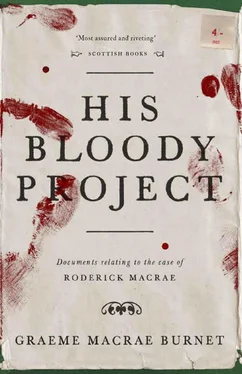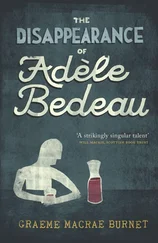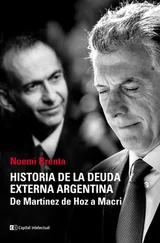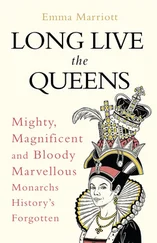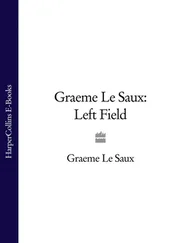Led by Mr Gifford, Mrs Murchison related how she had met Roderick Macrae on the morning of the 10th of August and exchanged a few words with him as he passed her house. A map of Culduie had been drawn up and was displayed on an easel in the court-room and Mrs Murchison indicated the position of her own house, that of the prisoner and that of Lachlan Mackenzie.
‘Did you find,’ Mr Gifford asked, ‘the prisoner to be an a state of agitation?’
‘No, sir.’
‘He did not appear nervous or anxious?’
‘No.’
‘Did you believe him when he told you that he was going to break some ground at Mr Mackenzie’s property?’
‘I had no reason to disbelieve him.’
‘And he was carrying some tools for this purpose?’
‘Yes.’
Mrs Murchison was then shown the Productions. She covered her eyes at the sight of the weapons and they were swiftly removed.
The elegant Mr Gifford apologised with a little bow, before asking, ‘Were these the tools that the prisoner was carrying?’
Mrs Murchison: ‘Yes’
‘And these would be the normal tools to carry out the work stated?’
‘Yes.’
‘But this was not the normal time of year to break ground, was it?’
‘Not for the purpose of planting crops.’
‘But this did not sound any alarm in your mind that this might not have been the prisoner’s true purpose?’
‘Roddy had lately been carrying out a good deal of work for Lachlan Broad.’
The Lord Justice-Clerk: ‘Lachlan Broad is the name by which Mr Mackenzie was known in your community?’
‘Yes, my lord.’
Mr Gifford: ‘Why had the prisoner been carrying out work for the deceased?’
Mrs Murchison: ‘It was in repayment of a debt owed to Mr Mackenzie by Roddy’s father.’
‘And what was the nature of this debt?’
‘It was in compensation for a sheep which Roddy had killed.’
‘A sheep belonging to Mr Mackenzie?’
‘Yes.’
‘What was the extent of this debt?’
‘Thirty-five shillings.’
‘And Mr Macrae — the prisoner’s father — was unable to pay this sum?’
‘I believe so.’
‘So, in lieu of payment the prisoner was labouring for Mr Mackenzie?’
‘Yes.’
‘And, in view of this arrangement, there was nothing untoward in your exchange with the prisoner?’
‘No.’
‘Nothing which might have alerted you to what was about to occur?’
‘Nothing whatsoever.’
Mrs Murchison then related how, some time later — she estimated half an hour — she saw Roderick Macrae walking back through the village, now covered from head to foot in blood. Thinking an accident had befallen him, she ran to help. When she asked what had occurred, he replied that he had killed Lachlan Mackenzie. He made no mention of the other victims. Mrs Murchison then described the general commotion in the village and how Roderick Macrae had been imprisoned in the Murchisons’ outbuilding.
Mr Gifford: ‘How would you describe the prisoner’s demeanour at this time, Mrs Murchison?’
‘He was quite calm.’
‘Did he make any attempt to abscond?’
‘No.’
‘Did he not struggle with your husband or the other men who imprisoned him in the outbuilding?’
‘No.’
‘Did he express any remorse for what he had done?’
‘No.’
Mr Gifford then turned to the matter of motive.
‘How,’ he asked, ‘would you describe relations between the deceased, Mr Mackenzie, and the prisoner?’
‘I could not say.’
‘Were they friends?’
‘I would not say so.’
‘Enemies, then?’
Mrs Murchison made no answer to this question.
Mr Gifford expressed some surprise that in a village of a mere fifty-five souls the state of relations between two members of that community could be concealed.
Mrs Murchison: ‘I never heard Roddy express any ill feeling towards Lachlan Broad.’
‘You were not aware of any vendetta between Mr Mackenzie and the Macrae family?’
‘I was aware that there had been some disputes between them.’
‘What was the nature of these disputes?’
‘There was the killing of the sheep.’
‘Anything further?’
‘There was the matter of the allocation of land in the village.’
Mr Gifford asked Mrs Murchison to elaborate.
‘In his capacity as village constable, Mr Mackenzie allocated a portion of Mr Macrae’s croft to his neighbour, Mr Gregor.’
‘You are referring to Mr John Macrae, the father of the prisoner?’
‘Yes.’
‘On what grounds was this re-allocation made?’
‘Mr Macrae’s wife had died and Mr Mackenzie argued that as the household was reduced in number they needed less land.’
‘And this was felt to be unjust?’
‘Yes.’
‘So there was the matter of the killing of the sheep and the matter of the re-allocation of farming land. Anything else?’
‘It is difficult to express.’
‘Difficult to express because it did not exist or because you cannot explain it?’
Mrs Murchison was silent for some time and had to be prompted to answer by the Lord Justice-Clerk.
‘There was a general air of oppression,’ she said eventually. ‘Mr Mackenzie often acted in a high-handed manner and in particular towards Mr Macrae.’
‘I see. Perhaps if you have difficulty explaining the relations between Mr Mackenzie and the prisoner, you could tell us your own opinion of the deceased?’
‘I did not care for him.’
‘Please tell us why you did not care for him.’
‘He was a bully.’
‘A bully?’
‘Yes.’
‘By which you mean what?’
‘He took pleasure in wielding power over those around him and especially over Mr Macrae and his family.’
‘He tormented them?’
‘I would say so, yes.’
Mr Gifford then concluded his questioning and Mr Sinclair rose for the defence, appearing, at first, quite flustered. ‘It must,’ wrote Mr Philby, ‘be an unusual occurrence for a provincial pettifogger to be involved in a case of such notoriety, or perhaps he was merely bedazzled by the enchantress in the witness box.’ In any case, after some obsequious enquiries about Mrs Murchison’s comfort, he commenced his examination.
‘For how long have you lived in Culduie, Mrs Murchison?’
‘For eighteen years. Since my marriage.’
‘So you have known the prisoner all his life?’
‘Yes.’
‘And how would you describe your relations with him?’
‘They were quite normal.’
‘You were on friendly terms?’
‘Yes.’
‘Before the acts for which he is here accused, have you ever known him to be violent?’
‘No.’
‘And you were on good terms with his family?’
‘Generally, yes.’
‘Generally?’
‘Yes.’
‘Could you elaborate?’
‘I was very close to Una Macrae.’
‘The prisoner’s mother?’
‘Yes.’
‘And his father?’
‘Less so.’
‘Was there any reason for this?’
‘We were not on bad terms, it is only that I had less to do with him and he with me.’
‘But there was no particular reason for that?’
‘No.’
‘But you were on intimate terms with the prisoner’s mother?’
‘Yes. We were very close.’
‘And her death occurred when?’
‘In the spring of last year.’
‘This must have been a quite traumatic event.’
‘It was a terrible thing.’
‘For you?’
‘For me, and for her children.’
‘How would describe the effect of her death on her children?
‘They were quite changed.’
‘How so?
‘Jetta —’
‘The prisoner’s sister?’
‘Yes. She became morose and terribly concerned with charms and otherworldly things.’
Читать дальше
